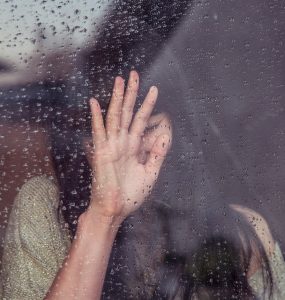How Do You Reach Closure When a Relationship Ends?
Endings can be hard. Whether it’s the end of a deep friendship or the end of a romantic relationship, there can be questions about why things ended the way they did. In an attempt to answer those questions, people can end up trying to find what they consider to be “closure.” Unfortunately, misconceptions about what closure is may end up leaving open wounds rather than finding a way to move on.
Closure, generally, is considered to be when a person lets go of a relationship or accepts that it is over and moves on. Depending on how close the relationship was and how long it existed, this process can take time. And that is one of the misconceptions about closure – that it is a point in time, a single event, that puts a period on a relationship. In reality, closure is more of a process that happens over a period of time, and it is often not a linear process. It can seem like one day like you’ve moved on, and then a couple of days later, old feelings flare up and questions start to eat at you again.

Another misconception about closure is that it has to involve the participation of the other person in the relationship. Popular media hypes up the idea of a sit-down or back-and-communication via email or text as being a necessary – and achievable – part of closure. Unfortunately, this rarely happens. Sometimes relationships end with ghosting. Other times, a quiet fade away. When there is the opportunity to ask questions of the other person, many times, the answers are not satisfying. Closure is more about something you come to yourself rather than something someone else gives you.
So how do you achieve closure? First of all, you give yourself time and space to not be ok – you give yourself time and space to grieve the end of the relationship. No matter how bad a relationship was – even at the end – there usually were good parts that kept you in the relationship. It’s ok to acknowledge those good parts and to admit that you will miss them. But, it is also important to recognize the parts that weren’t so good. Maybe it was something as simple as drifting apart – or maybe it was more complex and involved negativity and toxic dynamics. It’s important to take perspective and see both the good and the bad.
After you’ve taken stock, it’s time to start thinking about the present and the future. What have you learned – both positive and negative – about relationships? What would you do differently in your next close friendship or romantic relationship? It can be helpful to think about what you might tell a friend or family member who came to you to talk about their relationship ending if they were in the same position you were in.
Finally, it can be helpful to remind yourself that life is always a process of learning. Maybe you realize you accepted less than appropriate behavior in the relationship – or maybe you realize that you were the one who was toxic. No one is born knowing everything there is to know about relationships. Being realistic and truthful with yourself and taking steps to not repeat the same patterns going forward can be an important part of moving on from a friendship or romantic relationship and reaching closure.
If you find yourself struggling with the ending of a relationship, it may be helpful to talk with a therapist – Reach out to one of the therapists at Horizon Psychological Services today.

